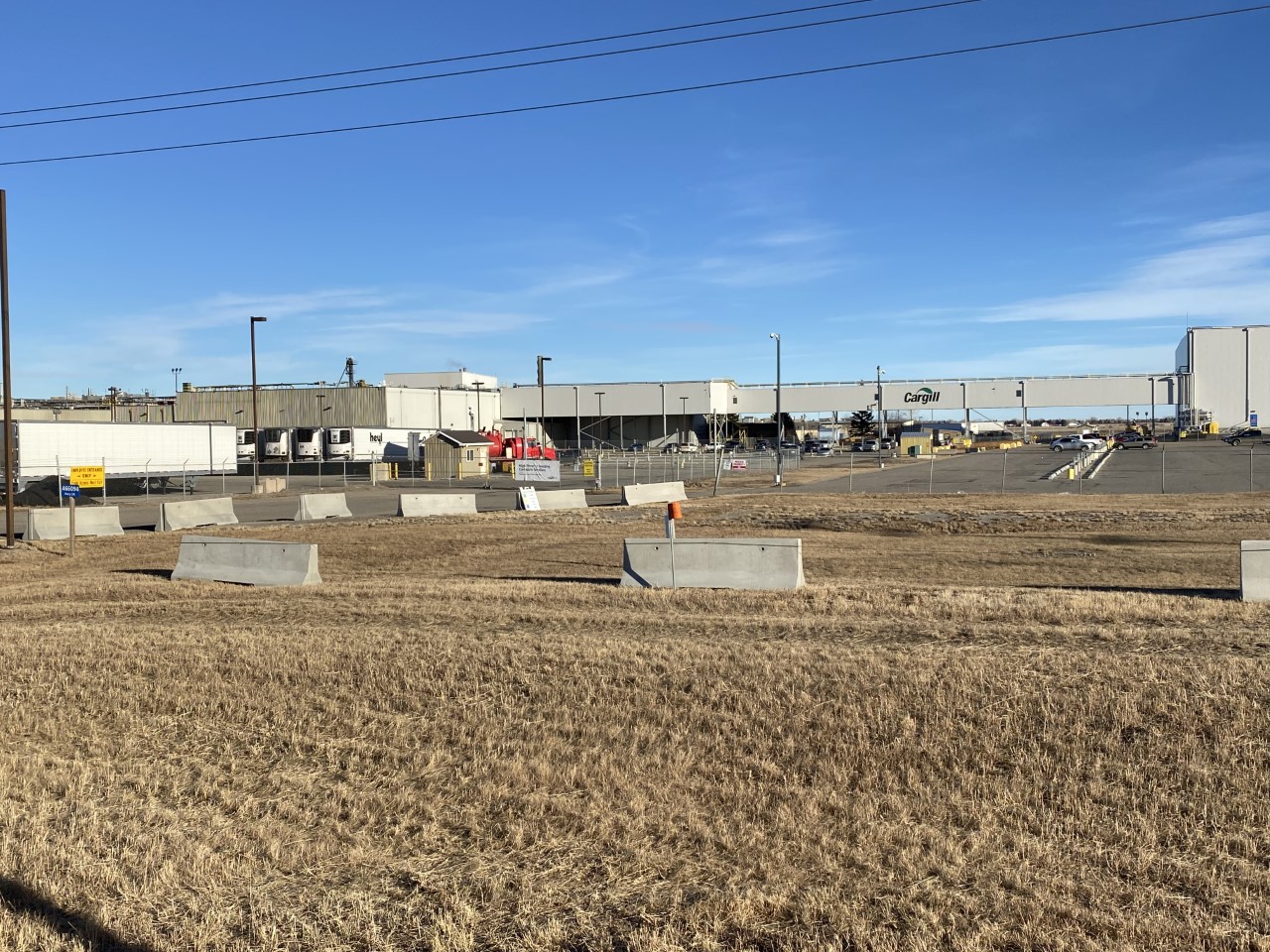Canfax official hopeful for settlement at Cargill
Posted on 1 December 2021 by adminis Cargill beef plant in High River.
Cargill beef plant in High River.Local Journalism Initiative Reporter
Despite the date of the impending strike at the High River Cargill plant drawing closer, there is still optimism that an agreement will be reached before the deadline.
“Most of the feedback we’re getting, is they’ve got a bit of time here to work towards a solution or coming to an agreement,” said Brian Perillat, Manager and Senior Analyst with Canfax. “They’re fairly optimistic they’ll get a deal done before there are any supply disruptions. So, you know, there isn’t panic in the streets at this time. But obviously, it’s kind of overhanging the market here, looking forward to December.”
The plant processes approximately 35% of Canada’s beef, said Perlliat, and around 4,500 head cattle per day. Depending on the nature of the strike should an agreement not be reached by December 6th, this could cause significant numbers of cattle to get backed up.
“It all kind of depends on how the strike unfolds, if it’s a rotating strike or a full on strike, and it does depend how and how long it goes on for, right, in terms of how many cattle get backed up, potentially,” said Perlliat. “On the positive side, it’s not going to be like COVID. It’s just one plant. A major plant, there may be outlets, the US markets have been strengthening and such so we can move some cattle around, it’ll be at a discounted price, but not probably to the extent we saw during COVID. Anyways, it’s kind of hard to pinpoint a number just without knowing how long it goes on for and how much impact it has on their actual supply chain.”
If the strike goes on for a significant length of time, such as a month, said Perlliat, the industry could see some difficulty, but with the market south of the border picking up, it may be an option to help cushion the blow of a prolonged or full-on strike.
With the retail price of beef at extremely high price points, the cost of wholesale beef has actually gone down slightly. In the event of a strike, we may see some product coming out of the United States at an increased price point, though not at prices like what were seen near the beginning of the COVID-19 pandemic, said Perlliat.
“COVID has brought some of that to light, that our packing is very concentrated and makes us a little bit more vulnerable to these kinds of things. But if things start looking rough or tougher than the local guys will be an important outlet, possibly, too,” said Perlliat.
The primary stress in the event of a strike will likely come to the producers and those operating feedlots, as opposed to the consumer, as prolonging the time cattle have to be fed before processing can quickly become costly.
“If it gets costly to producers, then you get more cattle getting backed up. Every day you don’t process you got another few 1000 heads that are backing up and it just compounds it stresses people, guys start dumping cattle sooner and at lower prices, and it just kind of snowballs. And hopefully we don’t get to anything like that,” said Perlliat.
Leave a Reply
You must be logged in to post a comment.
